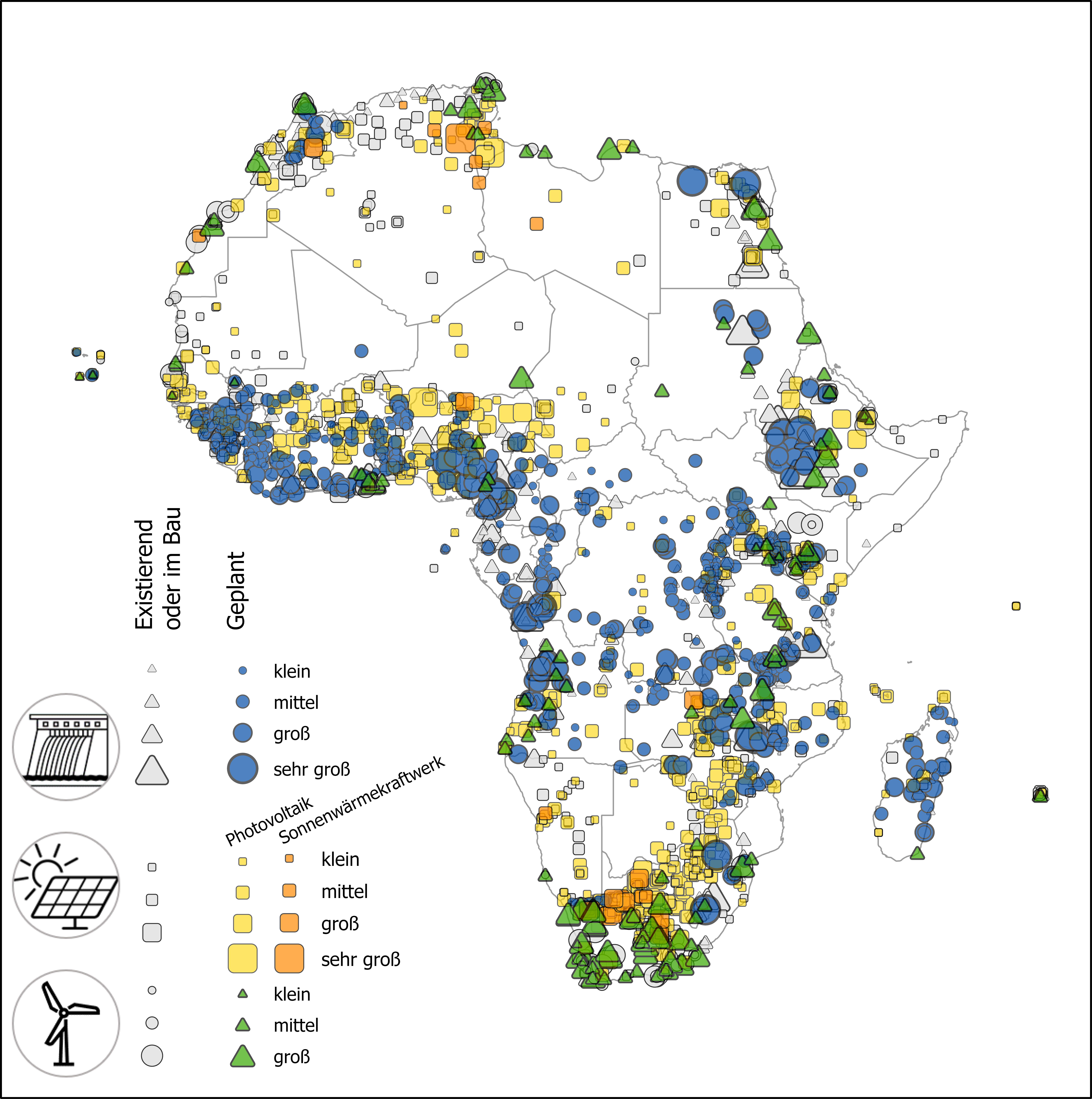A joint study by the University of Tübingen, the Senckenberg Society for Nature Research, the University of Osnabrück and the University of Rwanda has found that 80 percent of the energy required in Africa could come from renewable sources by 2040 - if the capacity of existing power plants were fully utilized and all the plants currently on the drawing-board were built. The international study has been published in the journal Nature Reviews Earth & Environment.
"There is enough sun, wind and water on the continent. Many African countries could skip the age of fossil fuels. But of course, a few things would have to be done to achieve that," says Rebecca Peters, doctoral scientist in the Geosciences Department at the University of Tübingen, and lead author of the study. Under the supervision of Professor Christiane Zarfl and partners in Germany and Rwanda, Peters compiled all available data on renewable energies power plants in Africa in a comprehensive database; then she evaluated the relevant scientific studies on the subject.
Sharply falling production costs for solar and wind energy are making possible a major expansion of renewable energies in Africa. However, the continent's energy requirements are expected to increase considerably in the coming decades. Two-thirds of the population currently has no access to electricity and the current population growth of 2.6 percent in sub-Saharan Africa is higher than in other parts of the world.
Solar and wind power plants can be operated decentrally and in local grids without being connected to overhead power lines; the authors point out that this is one of the advantages of renewable energy sources. By this analysis, a large-scale expansion of the electricity grid to rural areas would be expensive and unnecessary. And there is further potential for higher energy production in Africa in the smooth operation of existing power plants, lower energy losses during electricity transmission and a suitable combination of different forms of energy to compensate for fluctuations in solar and wind energy production.
"We are, however, skeptical about the unchecked expansion of hydroelectricity," explains Professor Dr. Klement Tockner, Director General of the Senckenberg Nature Research Society. Tockner is an aquatic ecologist and co-author of the study. "Although Africa is the continent with the world's least exploited reserves of this form of energy and hydropower currently accounts for 63 percent of renewable energy production, a great expansion of dams and lakes would irreversibly change the currently free-flowing rivers and would also force many residents to relocate," he says.
The sustainable scenario for universal access to renewable electricity in Africa requires that countries heavily dependent on coal - such as South Africa, or gas - such as Algeria, Tunisia and Libya - give up future expansion of coal and gas-fired power plants and transition to clean energy generation. "Structural change is only possible by doubling current investments by 2030 and investing an additional 30 billion dollars a year to ensure access to electricity for all," says Dr. Jürgen Berlekamp from the Institute of Environmental Systems Research at the University of Osnabrück. Investments from abroad would be needed, he added. Since the noughties, China has played an increasingly important role alongside the USA and European countries.
Publication:
Rebecca Peters, Jürgen Berlekamp, Charles Kabiri, Beth A. Kaplin, Klement Tockner, Christiane Zarfl: Sustainable pathways towards universal renewable electricity access in Africa, Nature Reviews Earth & Environment; https://doi.org/10.1038/s43017-023-00501-1
Interactive map showing renewable electricity power plants in Africa:
https://www.repp.geo.uni-tuebingen.de/







